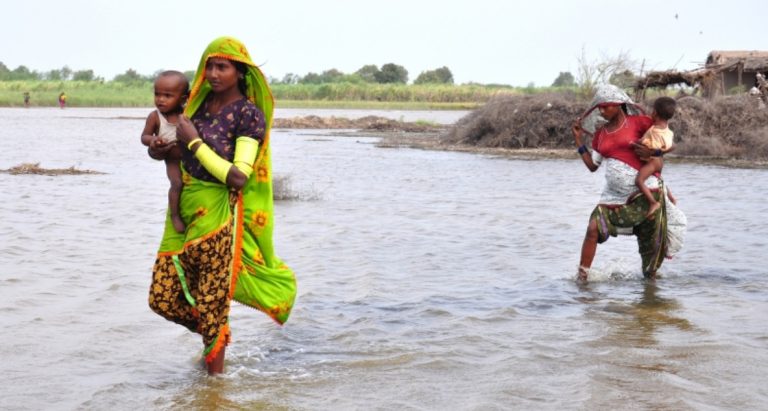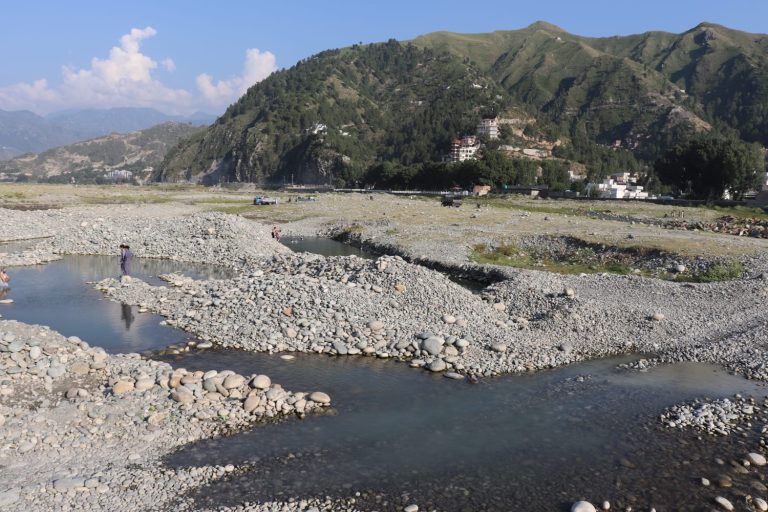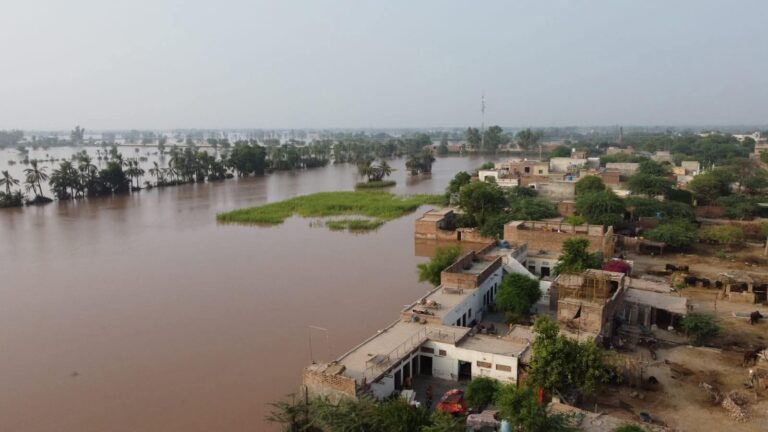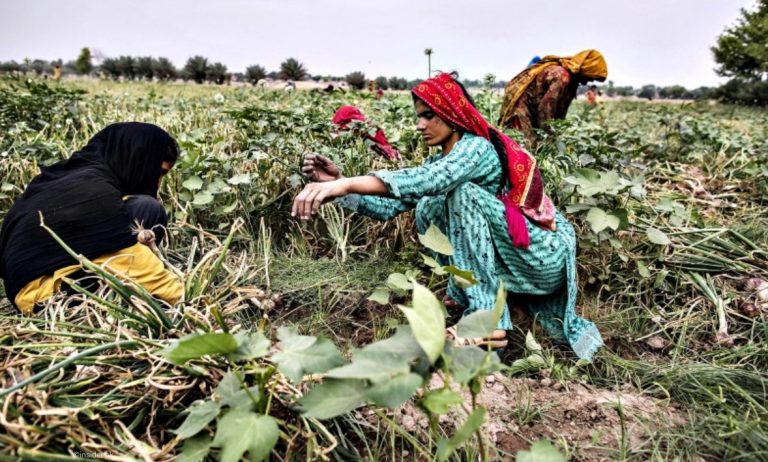Pakistan at the Crossroads: Confronting the Escalating Threat of Climate Change
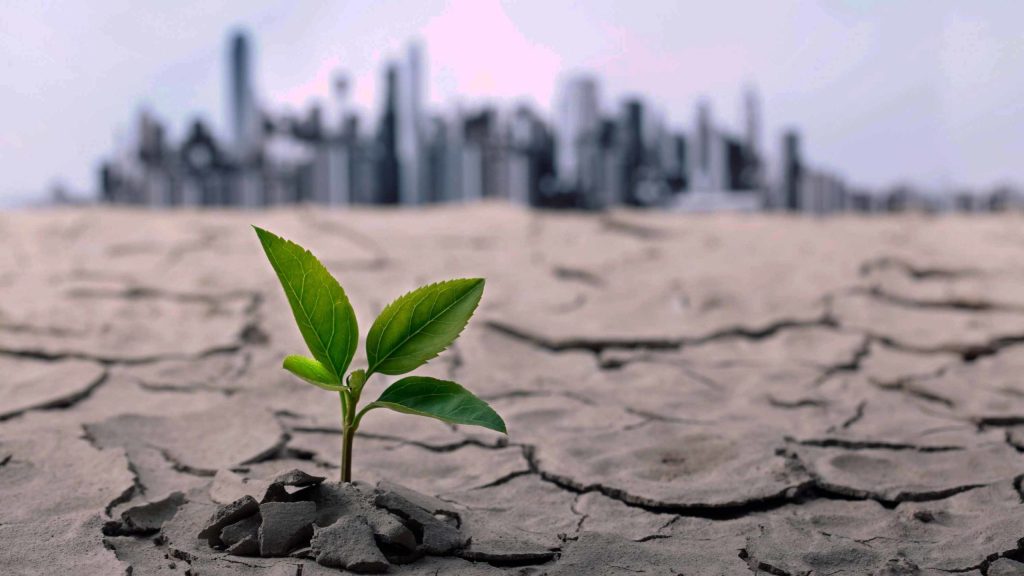
In our childhood, tales of great civilizations collapsing due to climate shifts or the extinction of colossal creatures like dinosaurs were relegated to folklore and Hollywood films. However, these distant scenarios have now become pressing realities.
Despite Pakistan’s minimal contribution to global carbon emissions, it is among the nations most severely impacted by climate change. According to the Global Climate Risk Index 2023, Pakistan ranks alarmingly as the fifth most vulnerable country to climate-related disasters.
This vulnerability was tragically underscored by the devastating floods of 2022, which resulted in over $15 billion in losses. The National Disaster Management Authority (NDMA) reported the heart breaking loss of more than 1,100 lives and the displacement of 3.5 million people. The floods obliterated 9.5 million homes and structures, while rural areas mourned the loss of over 800,000 cattle. Similarly, the catastrophic super flood of 2010 wreaked havoc across the country, claiming over 1,700 lives and affecting more than 2 million people. The destruction extended to 20 per cent of the nation’s cultivable land, with over 1.1 million homes damaged. The economic toll was a staggering 1.71 trillion rupees, with an additional 1.156 trillion rupees needed for reconstruction.
Pakistan faces formidable challenges due to climate change, exacerbated by its geographic and economic vulnerabilities. Water scarcity is an urgent concern, with the nation’s water needs heavily dependent on the Indus Basin Treaty. Already under strain, Pakistan’s water systems are further threatened by climate-induced changes in hydrological patterns, glacier melt, and irregular precipitation.
These circumstances highlight the critical need to control or mitigate local factors contributing to climate change to ensure Pakistan’s survival. Urgent actions are required to enhance the efficiency of institutions responsible for disaster prevention, strengthen infrastructure resilience, and equip citizens with the skills to respond effectively through early warning systems.
Investing in rainwater harvesting and transitioning from flood to drip irrigation can alleviate water scarcity. Protecting agriculture requires significant investment in research to develop resilient seed varieties and modernize farming techniques. Reducing reliance on fossil fuels and promoting renewable energy sources such as solar, wind, and hydropower can help curb air pollution and carbon emissions.
Robust government policies aimed at addressing the root causes of climate change are imperative, along with advocating for technology transfer and international cooperation to strengthen Pakistan’s capacity to tackle environmental challenges. The agricultural sector, a cornerstone of employment and food security, is particularly vulnerable to climate change, facing dwindling water resources and erratic weather conditions. This sector’s susceptibility to rising temperatures, untimely rains, floods, and droughts threatens livelihoods and exacerbates food insecurity.
Moreover, environmental upheavals wreak havoc on lives, property, and infrastructure, leading to substantial economic losses. Shifting climate patterns also contribute to the spread of health issues, with diseases like dengue fever on the rise.
Urbanization and industrial expansion further complicate the crisis, increasing demand for fossil fuels and worsening air pollution, smog, and greenhouse gas emissions. Addressing these multifaceted challenges requires urgent action, strong policy frameworks, and coordinated efforts to mitigate the impacts of climate change while promoting sustainable development pathways for Pakistan.
These efforts can be enhanced by raising awareness among local communities about climate change impacts and involving them in decision-making processes. Local governments play a crucial role in this regard. Additionally, integrating climate change topics into school curricula is essential to equip the younger generation with the knowledge and skills needed to confront this challenge effectively.
By prioritizing the conservation of natural systems and avoiding unnecessary disruptions, Pakistan can contribute to global efforts to mitigate climate change and achieve the Sustainable Development Goals. Ultimately, this approach will not only benefit the planet but also reduce the risks associated with climate change on a global scale.

